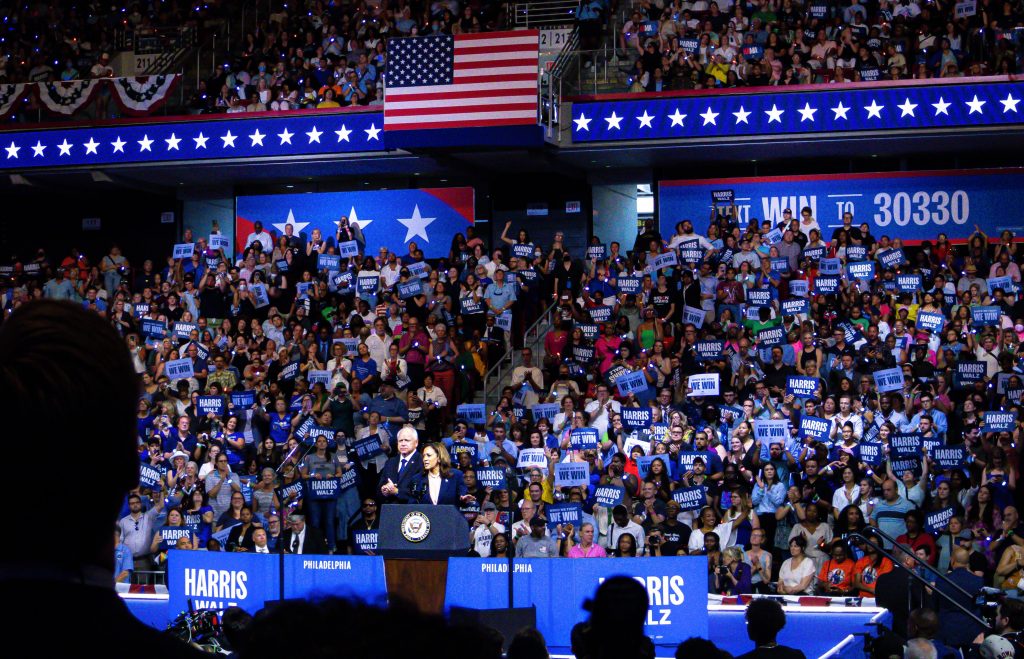
Music has long been a powerful tool in political campaigns, shaping public perception and energizing supporters. From the rousing anthems of the early 20th century to the modern soundtracks accompanying campaign events this year, music has served as a vital component in the arsenal of presidential candidates. Over the decades, music has evolved from simple campaign jingles to generation-defining pop songs that resonate with diverse voter bases, reflecting cultural movements and societal changes. As technology has advanced, so has the integration of music into campaign strategies, from radio broadcasts to social media platforms. The historical significance, impact and evolving role of music in presidential campaigns highlights key moments and influential songs that have defined the political landscape in the United States.
In early campaigns, popular song lyrics were often edited to incorporate the candidate’s name. While George Washington’s path to the presidency was not marked by partisanship, music was still employed to garner support. Supporters modified “God Save the King” to “God Save Great Washington,” mocking the anthem of their former rulers and promoting the new concept of an American President.
As campaigns became more competitive, candidates began using original campaign songs. In the 1840 election, Whig Party candidate William Henry Harrison campaigned with “Tippecanoe and Tyler Too,” one of the first songs to belittle an opponent — Martin Van Buren. Harrison’s catchy tune likely contributed to his victory against the incumbent, illustrating the power of music in shaping political narratives.
In the last century, candidates have typically opted for widely recognized pop songs to generate excitement instead of songs referencing themselves. Notable exceptions include Richard Nixon’s “Nixon’s the One” in 1968 and John McCain’s “Raisin’ McCain” in 2008. While Nixon won his election, the song did not resonate strongly with voters, and McCain’s campaign song failed to impact his race.
A turning point occurred in 1983 when Ronald Reagan effectively integrated popular songs into political campaigns, notably using “God Bless the USA” by Lee Greenwood during his 1984 reelection campaign. This strategic choice fostered positive associations between Reagan and the song. However, a memorable incident arose when Reagan referenced Bruce Springsteen’s “Born in the USA” during a rally in New Jersey. Despite its title, the song critiques the treatment of Vietnam veterans, leading Springsteen to clarify his political stance at a concert. This controversy marked the beginning of a complicated relationship between musicians and presidential campaigns.
In the 2020 presidential race, Donald Trump faced legal action from the Rolling Stones for using “You Can’t Always Get What You Want” at his rallies despite prior cease-and-desist requests. The band’s legal team, in collaboration with BMI, informed the Trump campaign that their music had been removed from the campaign’s licensing agreement, warning of potential lawsuits for continued use. This incident followed Tom Petty’s family issuing a cease-and-desist order after “I Won’t Back Down” was played at a Trump rally, reflecting ongoing tensions between artists and political figures.
Recently, in a significant show of support, Beyoncé granted Vice President Kamala Harris permission to use her anthem “Freedom” as a campaign song. This choice underscores Harris’s commitment to equality and empowerment, leveraging Beyoncé’s influence to resonate with a passionate fan base. By aligning with such a prominent artist, Harris reinforces her campaign’s message of progress and unity, demonstrating how contemporary music can serve as a rallying cry for political change and mobilization.
The intersection of music and politics in presidential campaigns has proven to be a dynamic and influential force throughout American history. As candidates harness the power of popular songs to connect with voters and convey their messages, the relationship between artists and political figures continues to evolve. Whether through anthems that inspire unity or controversial appropriations that spark a backlash, music remains a vital tool for shaping political narratives and mobilizing support. The ongoing dialogue between musicians and politicians will undoubtedly influence future campaigns, underscoring the enduring impact of music on the political landscape.


